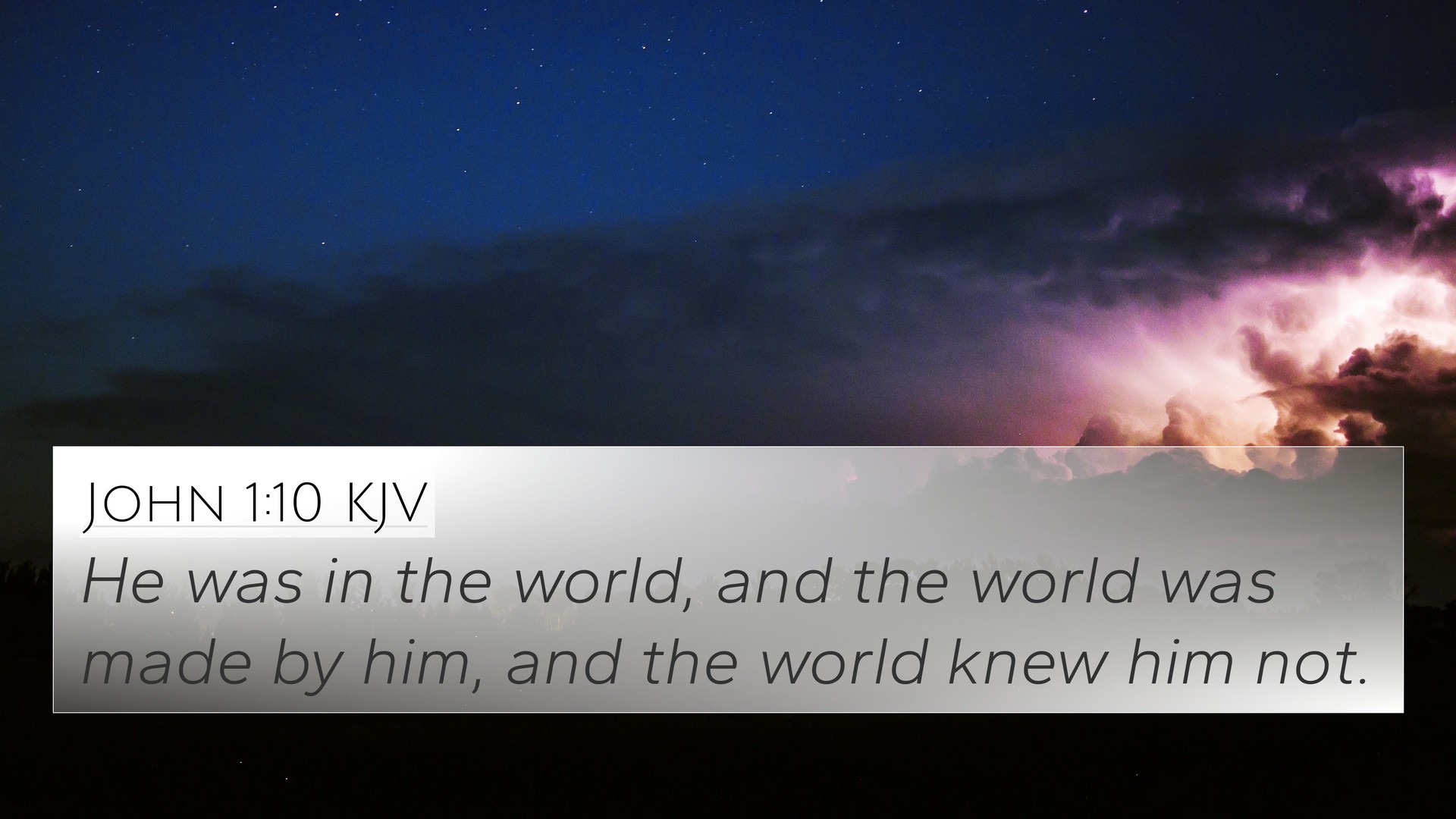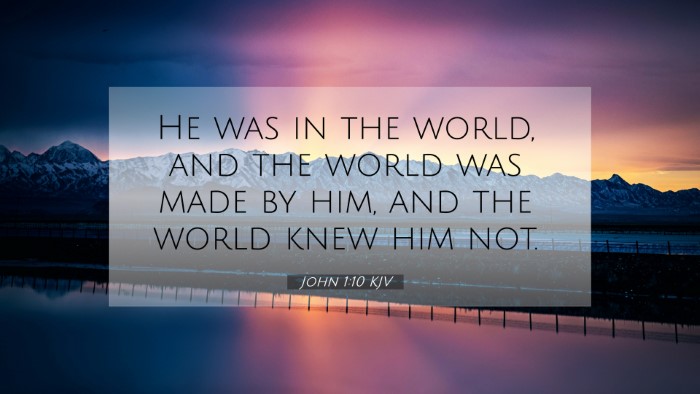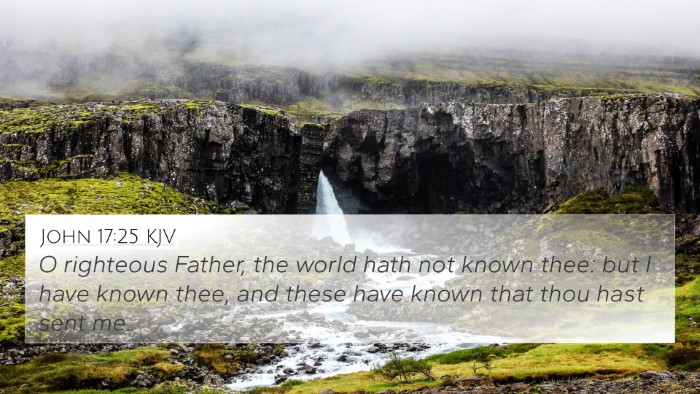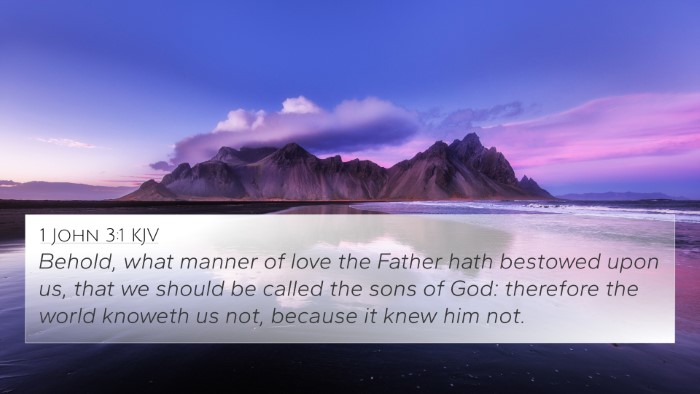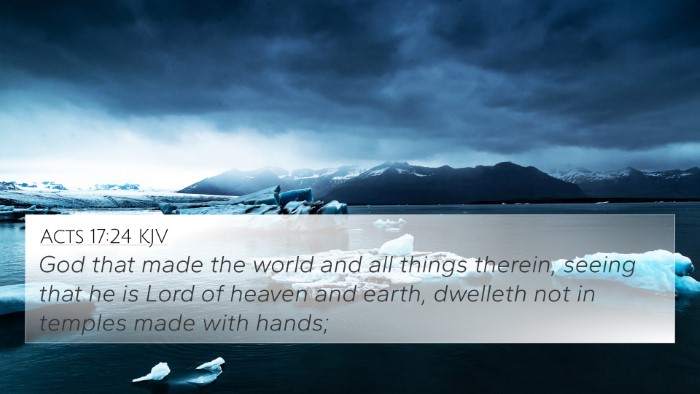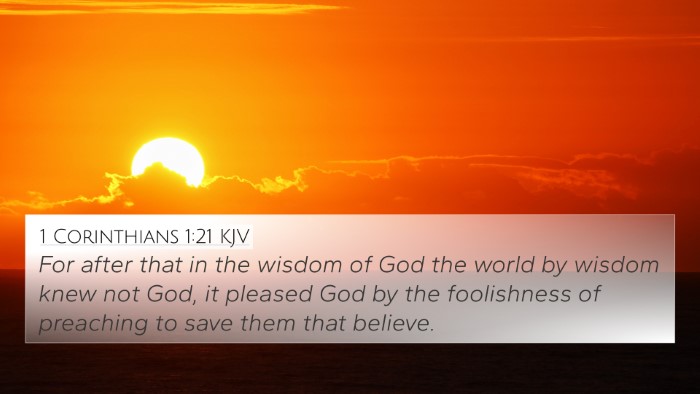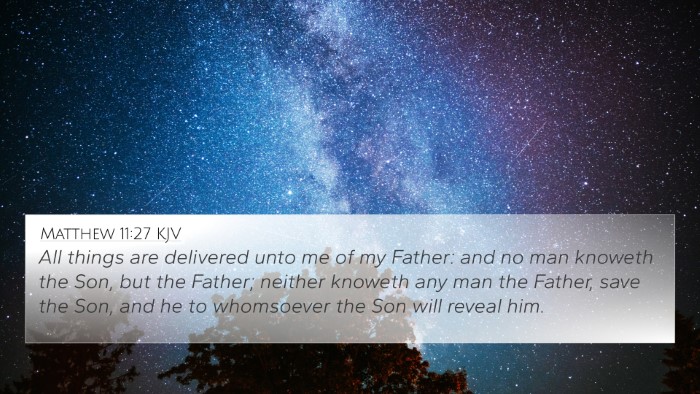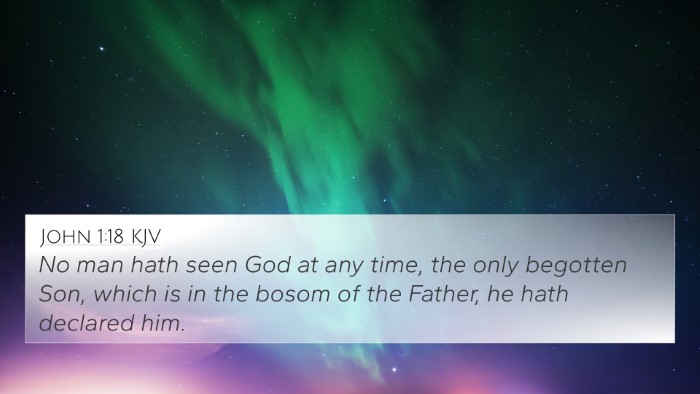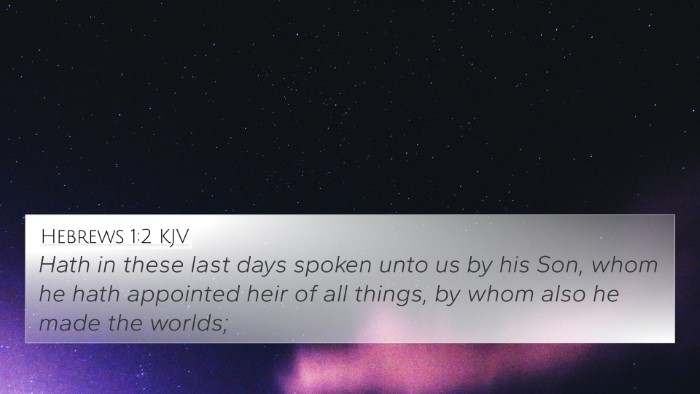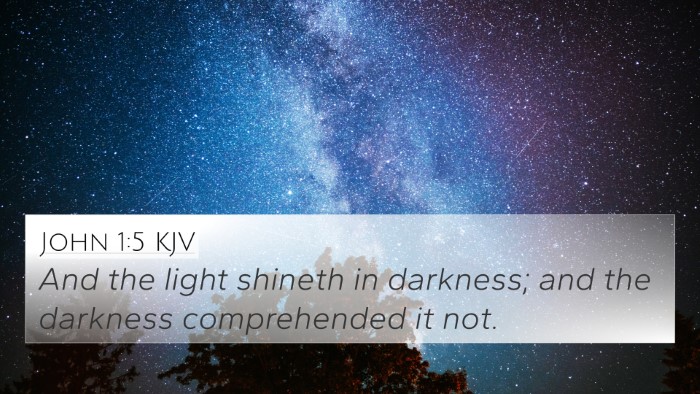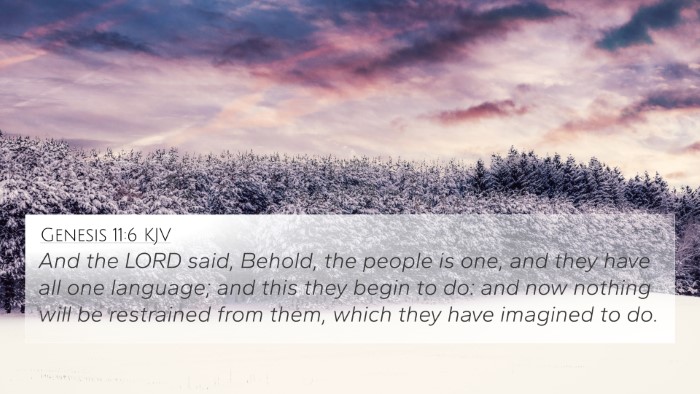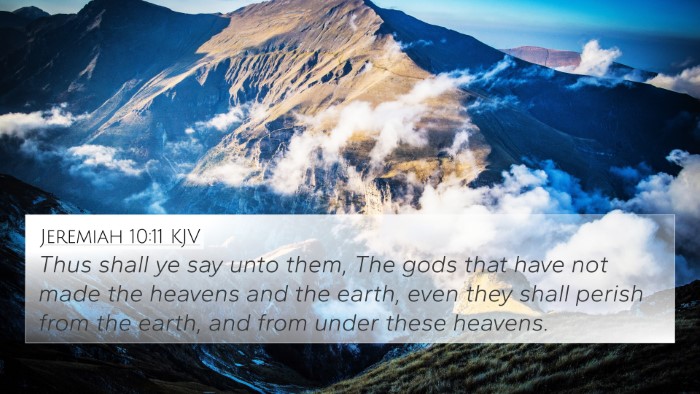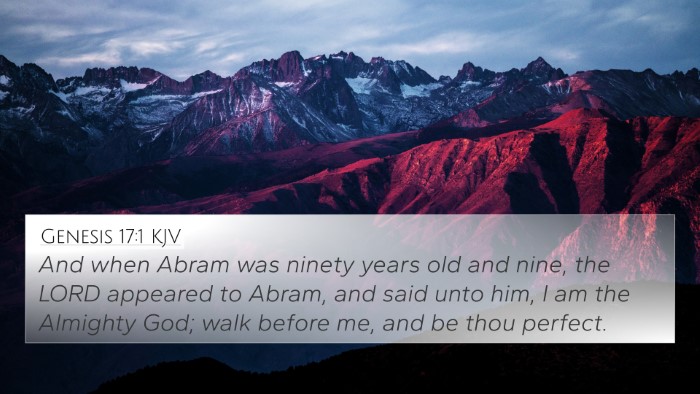Meaning of John 1:10
Verse Reference: John 1:10 - "He was in the world, and the world was made by him, and the world knew him not."
This verse extends a profound insight into the relationship between Jesus Christ and the world He created. Each part of this verse reflects significant theological truths that help us understand the nature of Christ's incarnation and humanity's response to Him.
Contextual Overview
This verse is situated in the opening chapter of John's Gospel, which emphasizes the pre-existence and divinity of Christ as the Word (Logos). The preceding verses dwelt on the divine nature of Christ, his creative role in the universe, and his unique relationship with God the Father.
Exegetical Insights
- “He was in the world” - This part affirms Christ's incarnation, that He actively lived in the world among humanity.
- “the world was made by him” - This highlights the creative authority of Christ, indicating that all things owe their existence to Him.
- “the world knew him not” - A poignant statement reflecting the spiritual blindness and rejection of Christ by those He came to save.
Theological Implications
John 1:10 encourages believers to contemplate the profound mystery of Christ’s dual nature—fully God and fully man. It also serves as a reminder of humanity's need for spiritual enlightenment to recognize and accept their Creator.
Commentary Excerpts
Matthew Henry's Commentary
Matthew Henry elucidates that this verse captures the profound irony of Christ existing in the world He created, yet being unrecognized by it. He emphasizes that this reflects the sad state of humanity, which often fails to acknowledge the divine presence in their midst.
Albert Barnes' Notes
Albert Barnes notes that the rejection of Christ by the world illustrates a lack of spiritual insight and appreciation for divine truth. He points out that many remain indifferent or hostile to the revelation of God through Christ.
Adam Clarke's Commentary
Adam Clarke interprets this verse as a testament to the grace of God, who sent His Son to a world that was unaware of its need for salvation. Clarke highlights the depth of Christ's humility in coming to a world that ignored Him.
Cross-References
John 1:10 connects with several other scripture passages that highlight similar themes:
- Colossians 1:16-17 - Affirms that all things were created by and for Christ.
- John 1:3 - Reinforces that all things were made through Him, emphasizing His creative power.
- Luke 19:10 - Illustrates Christ’s mission to seek and save the lost, further emphasizing the theme of recognition.
- Isaiah 53:3 - Prophecies about the rejection of Christ, aligning with the idea presented in John 1:10.
- John 7:5 - Demonstrates that even Jesus' own family did not believe in Him at first.
- Romans 10:21 - Paul speaks of Israel's failure to recognize God's efforts, paralleling the world's ignorance of Christ.
- 1 Peter 2:7-8 - Discusses the stone that the builders rejected, highlighting the same theme of unrecognition.
Thematic Connections
Through the lens of cross-referencing Biblical texts, the themes of creation, rejection, and divine purpose are prevalent throughout the Scripture. Understanding these connections provides a deeper insight into the nature of God and His interaction with the world. Various tools for Bible cross-referencing can enhance this study, offering a rich tapestry of insights from across the Biblical canon.
Conclusion
In conclusion, John 1:10 encapsulates key theological elements regarding the incarnation of Christ and humanity's response to Him. Through the lens of historical commentaries and through cross-referencing, we see a rich inter-Biblical dialogue that continuously invites believers to recognize and accept the Savior sent for their redemption. Engaging with Scripture in this manner can unveil profound insights and encourage a more profound relationship with God.
